There was no production in October that I would have waited for more than a four-episode series about Catherine the Great with Helen Mirren in the lead role. The greater was my surprise when I barely got through the first episode and I only watched the next one out of sheer curiosity if there would be any moment where the production would prove worthy of all the delights I heard about it before it hit the screens.
The series focuses not on Catherine’s entire reign but on her relationship with Potemkin. This means that in these four episodes, the series leads us from their first meeting in 1774 until the death of Potemkin and then the Empress. Initially, it seems that the artists are still somehow interested in showing Catherine’s numerous responsibilities and problems on the throne - especially since her power after her husband's death is not so well established. However, the series quickly becomes an interesting melodrama, based on the belief that Catherine and Potemkin shared a great feeling, which was her only true love. Of course, a difficult love because, as we know, all women in power love difficult but wonderful men, the ones with whom they can be themselves. The thread itself - inscribed in the frames of the classic drama of people who are perfect for each other but cannot be together, it would be tolerable if not for the fact that the whole narrative of a woman who in her life certainly not only loved is subordinated to this feeling.
Although in the following episodes we watch the next Empress wars, she nevertheless mainly throws herself around the palace, usually writing to Potemkin if she misses her, or shaking her nose for his behavior. She makes political decisions, but extremely often to make them she must first decide whether she loves his "only right man" or politics more. What is interesting is that Catherine biography tells us quite unequivocally that she rather did not have such dilemmas. Anyway, the word "love" is changed here in so many cases that one could come to the conclusion that it was a leitmotif in Catherine's life. Not just her at all. Everyone in this series is possessed by a vision of romantic love tailored to modern standards. It is a bit like the creators of the series could imagine a lot, but not that in the past romantic love was not so highly valued, and it was not something that people aspired to. Again, I get the impression that if it was not a TV series from Empress but the Emperor it would be more or less about quarrels between lovers and love declarations.
Well, let's assume, that the feeling that Catherine and Potemkin felt was worthy of the series (although in my opinion the scriptwriters would have acted wiser if instead of suggesting a secret wedding between the characters they focused more on the modernity of this relationship, which from romance evolved into friendship). The problem is that even if we had to swallow all this romantic gibberish, the question of the script remains. This one is written as if the creators read about Russia and could not forget anything. In extremely rigid dialogues, the characters explain one by one things that should be absolutely clear to them, recall events that we have not seen so as to set us in history and from time to time say things about which the viewer can be sure that they are rewritten from letters or diaries but they do not match the modern language of the series. Alternatively, they are repeated so often that they become irritating. It is worth noting that the creators decided to abandon any language stylization, which means that in this whole costume everyone speaks a modern language - which does not necessarily work well. If it were still dialogues brilliantly - and here they are even rustling paper and every now and then someone is explaining the situation to someone - as if we could not orient ourselves in the situation between several main characters.
In addition, the whole series - embedded mainly in beautiful palaces, happens a little "In Russia or nowhere." It is even difficult to clearly describe - but when watching the series you get the impression that the creators completely do not understand the specifics of Russia, how much this country - even dressed in western clothes, has its own culture, its own mentality - that this is something a little different than dressing up people in period costumes, let them into rooms glistening with gold and tell them to go to Orthodox church twice. Although I suspect that something may have to do with the fact that it is extremely difficult to watch the Russian manor in which everyone speaks English. Another thing is that language is not always able to reflect the nature of what it talks about. Catherine speaks of slavery in Russia, not serfdom. Which, however, is a difference. It seems to me that for viewers who seem not to know the realities of Russia at the time, this production is so salon and so out of context that they will eventually end watching it, not knowing more about who Catherine was but also who she ruled. At the same time I will not hide - the best element of this series are costumes and interiors. If you have an eye for beautiful costumes and beautiful palaces from the era, then this series will be an aesthetic little thing. I am a bit immune to it, actually - beautiful interiors make me happy when they are filled with interesting characters. When they are beautiful in themselves, I yawn a little.
The creators of the series also came to the conclusion that each character will have a plus or minus one character trait because we know - such are people. Empress’s son is desperate and hungry for power, Potemkin is eager and eager for recognition, Catherine is proud and eager for attention and affection. Seriously, despite the passage of time, everyone is preserved in their characteristics and nothing can change them - no matter how much their political situation, position at manor or age change. Were it not for the fact that the creators aged all the heroes every episode at any cost, it could easily take place over one year - there is no change, no change of approach, no adaptation to new times and new situations. In series that cover many years, if they are well shot, the viewer feels the passage of time, realizes that the characters at the end of the production are already something completely different than at the beginning. Here, we can only say that they are maybe a little more gray and have an even less comfortable wig than usual. In the lives of the characters, it seems to change so much but just like everything in this series - apart from the decorative coating, we will not see this internal transformation.
Let's talk about actors because in total this series would not have been without the desire of Helen Mirren to play Catherine the Great. Helen Mirren is an outstanding actress with no problem playing a woman in power. She is also a dream woman to play a character who has gone down in history as the one who treated sex as rulers usually did - changing lovers without getting too involved. There is a problem, however. Which we have to dismantle here. Well, when Empress met her ten years younger lover, she was 45 years old. She was not young, but it is not old age. From today's point of view - which is important in my further considerations - this is the middle age but the early age. Helen Mirren is 74 years old. Of course - let's put it straight away - Helen Mirren after seventy has more beauty and sex appeal than most of us will have throughout our lives. However, this does not change the fact that you can see that she is older than the 45 years mentioned. I write about it for two reasons. The first purely historical - probably some of the viewers will not understand at what a moment in Catherine life the whole story begins. At first glance, everything happens much later in her life than in reality. Sure, people used to live shorter but still a 45-year-old woman was not exactly the same age as a woman in her 70th.
The second reason is more complicated. Well, in the movies we often have the situation that the roles of "ordinary women of an undetermined age" play actresses around the age of 20. Viewers as the starting woman usually get an actress who is under 30 years old (I know this is shocking, but yes, we often don't think about the age of the actresses playing heroines with certain life experiences, and then it turns out that most women of average age ladies play before 30). This means that in movies and series we see relatively fewer women in their 30s and 40s, and even less in the lead roles. Especially since there is usually a big age gap between the heroines and heroes, so it seems clear to us that the partner of the 40-year-old hero looks like a 20-year-old. We don't even think about it. When we give the role of a 45-year-old actress in her 70s , we equalize and flatten the age of all women above this "young" 20s and 30s. Catherine is older than Potemkin and is not young. So it does not matter that the actress is older than the heroine by more than two decades, and the actor playing her lover is not younger than her by real 10 years only by 20. Because ultimately she is older. And why drill down. And it ends the same way - we add to the vision disorder what women who are not very young look like. I know that this may not bother everyone - especially since Helen Mirren is the best thing that happened to this series but for me it is a bit of a reflection of thinking about the age of women. "Not Young" is a concept so comprehensive that it can house 45 years old and women in their 70s. After all, there is no difference. Although there may be one - usually such series are very brave in undressing their heroines, and here suddenly the creators decided that they do not have to go naked. Which is on the one hand refreshing and on the other hand shows the paranoid fear of filmmakers before showing any body that is not very young. All in all, this is not a problem of the series itself, but rather a good lens through which you can see some million problems of filmmakers with women and their age as soon as they are no longer very young.
And when it comes to the acting, Helen Mirren it is uneven. Perhaps because the scenario is uneven and sometimes gives her such melodramatic wood to play that it is not surprising that the actress is not easy to break through. Still, you can see her enormous talent, especially the stage one, when we deal with an intimate scene and such a typical game between actors, where the most important thing is to get everything out of the dialogues. In such exchanges, in the hallways of Palace Mirren is the best. Similarly, when she does not have to say anything but simply change the expression on her face, she knows that she is well aware of what is happening around her and who she can no longer trust. However, it is harder to watch these nightmarish melodramatic scenes, because well ... they are nightmarish at all, and besides, if - while playing an independent and commanding woman comes to Mirren without a problem, playing a woman who needs a man so badly falls in her case somehow artificially. However, it must be said that Mirren looks fantastic in period costumes. In general, I'm not surprised that she wanted to play this role. Because with all remarks - she was created for her in many ways. It is a pity that her talent and possibilities did not get a little better script and much better direction. Because this is the role for which it should be a sure seal of her perfect career.
Interestingly - despite the fact that Helen Mirren receives the highest marks from all critics, Jason Clarke as Potemkin he convinced me the most - though not after the first episode. I'm not saying that this is an outstanding role, but somewhere around the third of the fourth episode there is one or the other scene between him and Catherine, in which he manages to play everything that was said about Potemkin - that he was full of contradictions, fascinating and as reportedly unanimously acknowledged at manor - sexy. Apparently - taking advantage of Englishism - he was a man larger than life. And this Clarke definitely reflects on the screen becoming in some moments actually this man, without which you can not do anything, despite the fact that there are a lot of disadvantages in him, which, however, are immediately balanced by some advantages. Although it must be admitted that it is also a largely paper figure, written in accordance with the principle that a real man will never be able to endure a woman with any own opinion and any power over him. It will always be the subject of suffering or conflict. Rory Kinnear also wanders for some time in the series as Panin, who at least in my opinion seems to be playing in another series. While everyone around him is over-ripping, he plays as if he wasn't being paid for facial expressions or intonation. This is hilarious because Kinnear is a good actor but for some reason he doesn't completely fit the whole company. When at some point he disappears from the screen, you can almost see the relief on his face that he can now remove the wig.
No series about rulers is a series just recreating their lives. In what happened in the past, we are to look through and learn something about the nature of power and the people who exercise it. What will we learn from the story of the great ruler? Well, nothing unusual - there is no woman in power without love, love is more important than what you do politically because love is yours and politics is public. No matter how many lovers you've had in your life, you've definitely loved one with all your heart, and all in all, your life without it made no sense. Because our vision of love assumes that there is one true love. And it's also one that obviously had to have a wedding somewhere in the background. After all, if two people love each other, they get married. It can't be any other way. Yes, you could conquer many countries and carry out more than one reform, but wasn't the most important conquest the heart of beautiful Potemkin? I honestly admit that I am absolutely fed up with all these great female rulers in the history of which only a guy always counts.
I know that male-female relationships are important and interesting but they are not the only way to talk about women's achievements, we suddenly face a paranoid vision that every great woman is in fact only a person we can talk about in the context of her relationships with men. And it is not about deleting the thread completely, but about balancing it. In the end, Catherine did more in 20 years before she start her relationship with Potemkin.
I must admit that maybe if I did not wait for this series I would not feel so disappointed. Ultimately, however, I have confirmation that cinema or television trying to tell about the great women of the past usually slip over their own legs. Perhaps because this problem always arises, that we talk about men and gossip about women. Or maybe we can't find an attractive way to talk about people from the past who don't fit our patterns. Maybe this is a distinction for historical figures that they elude us so much. Because it means that their lives were more interesting and more complicated than the narrative patterns we are used to. Well, at the end of the day, we only have a little bit of sinful pleasure and hope that at least Helen Mirren had a good time shooting this series. We always wish her well.
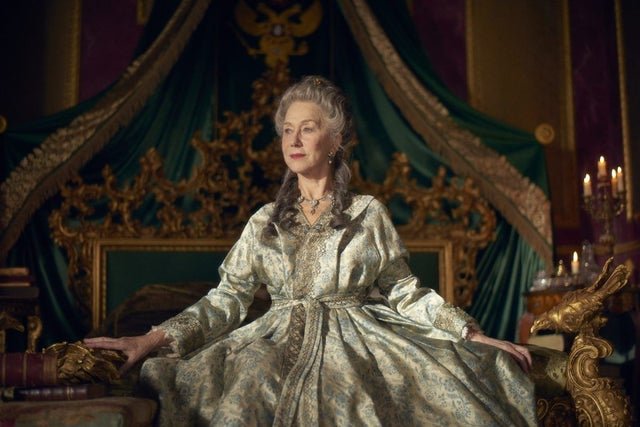
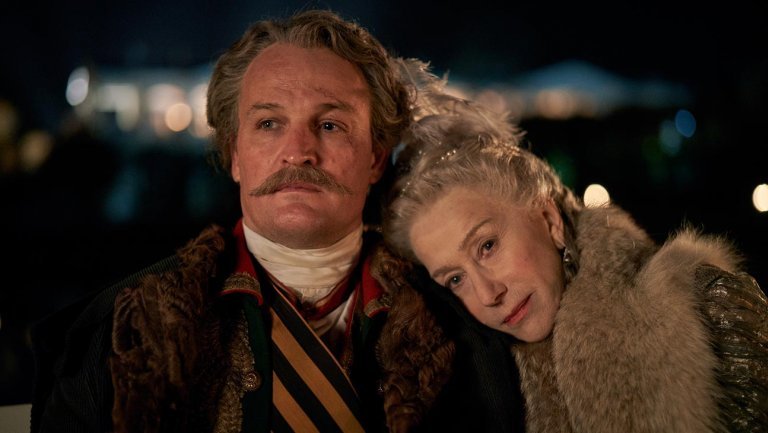
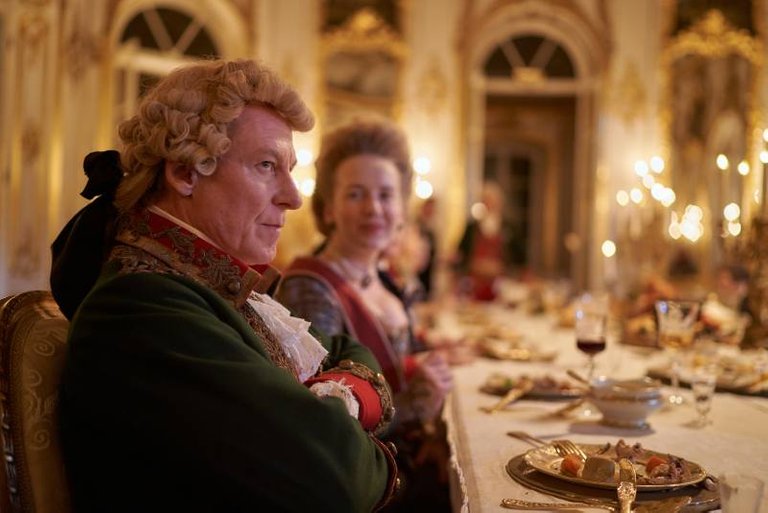
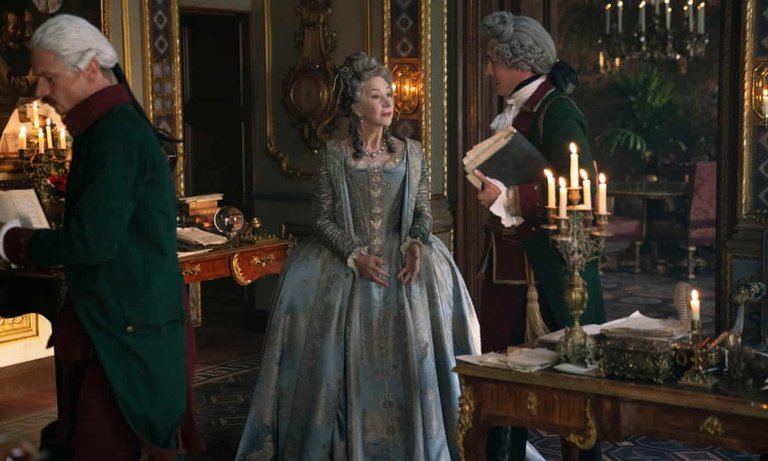
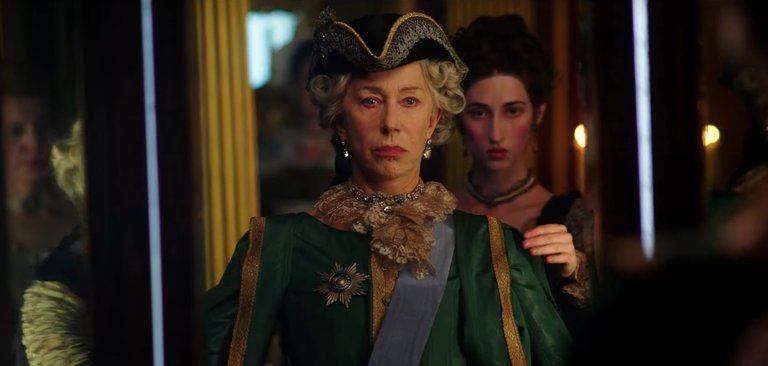
This post was shared in the Curation Collective Discord community for curators, and upvoted and resteemed by the @c-squared community account after manual review.
@c-squared runs a community witness. Please consider using one of your witness votes on us here